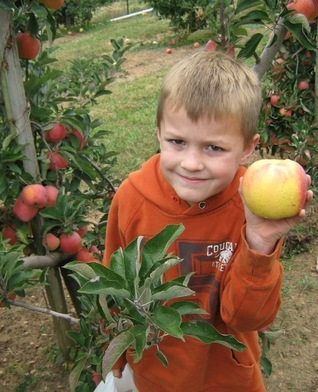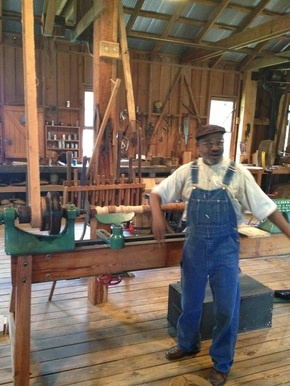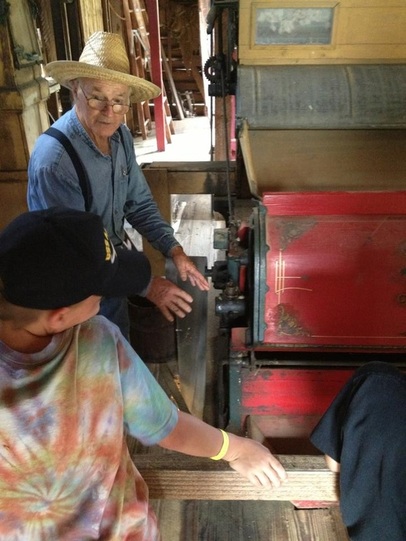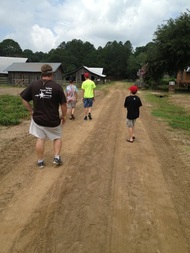|
I started All the Biscuits in Georgia a few years ago as an effort to celebrate and protect Southern Culture. I chose the metaphoric name to communicate my intention to cover a broad collection of topics. Whether I'm covering a serious topic, eavesdropping while Janeal converses over a breakfast of french fries with ranch, or following Uriah as he investigates the mysteries of Timbuktu, the goal is to celebrate and protect Southern culture. This week I'm going to hit on a couple of points that may seem unrelated but each directly affects our culture.
Let's start with our peach deprived cousins to our immediate west. Bless their hearts. Dateline, Montgomery: Governor Robert J. Bentley (not a Jacksonville State grad) has asserted that he will raise taxes, even if it takes 10 legislative sessions. I don't typically delve into the politics of other states unless it's something galacticly stupid. So I'll gladly delve into this. The South has prided itself on low taxes since Methuselah was knee-high to a grasshopper. We understand that higher taxes stifle growth and create lag in the economy. Besides, our mamas taught us that stealing is wrong. So we keep it to a minimum. We're talking about a Republican governor from small town Alabama who campaigned with a promise of no new taxes. Sound familiar? Now, back to the Peach State. Atlanta, Georgia. "You will never find a more wretched hive of scum and villainy." We must be cautious. Under the Gold Dome, House speaker David Ralston and the House Judiciary Committee are pushing a proposal that would exempt businesses from the Religious Restoration Act. This would force privately held businesses like Hobby Lobby & Georgia's own Chic-fil-A to be subject to the portions of Obamacare that violate their constitutional religious freedom. Again, these are Republicans, the lever-flip party in Georgia. This is why we should vote for candidates, not parties. But an even more troublesome violation has surfaced in the Classic City. The state's flagship public university, in its infinite wisdom, has taken action in the University of Oklahoma SAE fraternity controversy. The University of Georgia has decided that the best way to react to drunk racist frat boys at another school, in another state, 924 miles away is to forbid UGA sorority girls to wear hoop skirts to annual social functions held to commemorate the history of The South. Sounds completely plausible. Because, when you think about it, any time you see a pretty Southern Belle in a hoop skirt, your first thoughts are racial slurs and references to the lynching of black people. It is hard to believe that college educated people selected to operate one of the premiere southern public universities could be this ignorant. The biggest problem we are facing here is that our own people are attacking our culture. Our own officials are trying to raise our taxes, force individuals to use their own businesses for purposes that are not congruent with their deeply held personal beliefs. And now, the people entrusted to educate our children have determined that girls wearing hoop skirts are the equivalent of Ku Klux Klan members preparing to hold a lynching. I'm not one to get offended easily. In fact, I usually roll my eyes anytime I hear someone complain about being offended by the "insensitive thing of the week". But this action by UGA is culturally insensitive. It is likening historic attire It is removing a long-practiced tradition of celebrating Southern History that, in itself, is absolutely incapable of offending a reasonable human being. It is a violation of the sorority members' constitutional right of free expression. It is preemptively punishing UGA students for what a handful of OU students did. It is shameful, it is wrong, and, as a Georgian, it is embarrassing. With that, I'll close. But I'll close with a plea to my readers. Don't ever vote party line, for any party. Keep an eye on what the nitwits do when we send them to Atlanta, or wherever else they may roam. And stand up for your heritage, regardless of what that might be. Where you came from matters, fight for it.
2 Comments
The applicable Twitter conversation of the week was on Southern food. A comment was made about my numerous opinions on the topic. Part of my concern was a few of the opinions of a chef from Canada. And I'm not talking about Canada, North Carolina. No way, eh. I'm talking about take off you hoser, Canada. Fleshy mutants, Elsinore and hockey pucks. Great. White. North.
If I'm fair, the gentleman did have some good points about Southern food. He spoke of fresh, locally grown fruits and vegetables and the types of food that would be eaten by people who grew everything they ate. He pointed out that all Southern food wasn't fried meat. But here is where I think he may be missing the point of Southern food. You can't learn Southern food in a New York City cooking school. Sure, you can learn techniques and pairings and all of the science of Southern food. But I wonder if he's had the experience to really understand Southern food. Does he know how to locate a wild blackberry bush? Has he ever stood on the side of a dirt road and eaten them straight off the plant, picking the briers out of various body parts from reaching and leaning to snag another handful? Does he know when a crabapple is ripe because he's had more than one belly ache from eating too many green ones? Has he sat on a front porch snapping beans while watching a storm approach across the field? Did his great aunt have oranges on trees in her back yard? Let me share this story. My Uncle Bill taught me and my younger brother to fish. He and my Uncle Bobby taught us to clean fish. We were expected to help clean what we caught. Before we ever hooked up the boat, Paw-paw had already called uncles, aunts, cousins, friends from church, customers, employees, and maybe even a random stranger or four and invited them to a fish fry on the appointed night. At this point we were in possession of zero (0) fish. So my brother and I would head down the two sand ruts that made up Paw-paw's driveway. Uncle Billy's place was about halfway down to the paved road under a live oak tree. We'd play with our cousin until bedtime and then sleep until we each heard "Wake up buddy, let's go fishin!" and it was off to one of the multitude of freshwater lakes in north central Florida. Live bait, cane poles and some age-appropriate cold beverages (and most of the time, Uncle Bobby) were added to the boat and off we went to sit in the lake for a solid hour without a single bite. Every time, no exceptions. After the mandatory hour, the fish seemed to realize we were there. And then we would catch fish,- bluegill, warmouth, speckled perch (because there's nothing crappie about a speck) - until we had enough to feed all the people that Paw-paw had promised fish. My brother even caught a bass once. At the cleaning shed Uncle Bobby declared it too small to bother with and fed it to a blue heron. And then we cleaned all those fish. No scales, no heads, no guts, rinsed with the hose and packed in ice. And then it was back to the farm. Slowly folks began to arrive. We got to visit with people we hadn't seen in months, or maybe even years. My grandmother would cook grits inside and the ladies would visit. The men were outside, gathered around Uncle Bobby's fryer waiting on all those fish to float to the top. He also made the hush puppies. But mostly the men talked. The Florida family would talk about how bad the Gators would beat the Dawgs the next year. We'd laugh because they hadn't hired Spurrier yet and we knew they couldn't beat UGA. But I loved those conversations. It was like a rite of passage to sit around the fryer with an age appropriate beverage and talk trash while the fish I caught were prepared and presented to my immediate and extended family as the entree. We'd top it all off with homemade peach ice cream before games of tag or catching lightning bugs with my cousins. Can you learn that in a New York culinary school? Can you even learn it from a book or a TV show? This is where the line is drawn between typical Southern and actual Southern. It's the vast difference between the science and the art.  We love fresh Georgia produce! We love fresh Georgia produce! I read a quote this past weekend that gave me pause. The President was speaking in South Carolina and and made a claim. At first the claim sounded absurd, but then I thought about what he really said. After I gave the claim some thought, I realized that I agreed with what he said. What he said was, "As long as you can go in some neighborhoods and it is easier for you to buy a firearm than it is for you to buy a book, there are neighborhoods where it is easier for you to buy a handgun and clips than it is for you to buy a fresh vegetable, as long as that's the case, we're going to continue to see unnecessary violence." My first thought was I'm within reasonable walking distance from a place to buy all three of these and I'd have to have a background check for the gun but not the books or the vegetables. In fact, I've bought books and fresh vegetables this past weekend. But this isn't the sort of neighborhood the President was speaking of. And I think the link to these neighborhoods and violence is valid. For instance, we have plenty of access to all three products in question. We also have a lot of gun owners. We have no black market for weapons to speak of. The people in this community that own guns are often hunters and sportsmen that know the purpose and place for guns. They are also instilled with a moral code and a respect for human life. Most are somewhat educated and gainfully employed. And yes, they have access to books and nutritious food. There is very little violence, gun or otherwise, in this community. But not far from here are communities where someone could buy a gun, cheap, tax-free, no background check, off a street corner. No questions asked. But in that same neighborhood, you won't find many, if any, stores that sell books or fresh vegetables. The neighborhood residents are poor, lack medical care, deal with high crime rates, particularly violent crime rates, and often, understandably, have lost hope. This problem is magnified in large cities. New York, Chicago, and Los Angeles are the usual suspects. But this problem is just as bad, if not worse, in Atlanta, Birmingham, Nashville, and New Orleans, which logically have climates much more conducive to producing fresh vegetables. Our problem is easy to recognize, but no one wants to admit it. So this is probably where the President and I begin to disagree. The problem isn't race because these neighborhoods represent every race in this nation. The problem isn't income distribution because wealth is not dealt like cards in a poker game. The problem isn't really even crime. These problems are all symptoms of the larger problem. America as a nation has lost its identity. Let's go back to the infancy of our nation. Here's a list of people. Try to guess what they all have in common. The Minutemen at Lexington-Concord, four 0f the first five Presidents. The authors and 11 signers of The Declaration of Independence. The Father of the Constitution, The commander of the Continental Army. I could go on but this list is substantial enough to prove my point. Any idea what they all had in common? Give up? They were farmers. They may have also been lawyers, educators, inventors or military men but they were all farmers.  Learning at the Georgia Museum of Agriculture in Tifton. Learning at the Georgia Museum of Agriculture in Tifton. Our nation was based on an agrarian economic model. It's a very simple philosophy. An agrarian centered republic is how we were born. Over the years a series of events, some larger than others, have shifted that existence from the one our founding fathers intended to the present reality: an urban centered empire. A nation founded by farmers and small business owners has evolved into a nation run by big corporations and big banks in big metropolitan areas that dismisses large expanses of farmland as "flyover territory". Living off the land is now seen as backwards, even bizarre. A perfect example is the recent debate in Savannah over whether or not to allow residents to keep bees in their backyards in residential areas. This is the South, a major agricultural area and people are scared of the land and centuries old methods of interacting with its indigenous inhabitants. Another example is the efforts of city people in Portland, Maine trying to dictate bear trapping policy for the remainder of a very rural and forested state - against the advice of wildlife biologists. So the problem isn't even restricted to the South. As I often say, city people are funny. Let's take a closer look at these city people. Big cities with big businesses. Everyone is a number. Trees are lampposts. Grass is concrete. Produce is asphalt. There is noise pollution, air pollution, and litter pollution. When businesses and jobs leave the inner-city areas, these people lose incomes and services. Sometimes this is crime. Sometime its plummeting property values or soaring tax rates. No matter the cause, it makes life in these areas difficult. People can't fend for themselves because there's nothing to fend with. When frustration and desperation set in, books become irrelevant, fresh vegetables become non-existent, and a black market gun becomes a means of survival. Eventually, having a gun and the guts to use it becomes a status - a distorted form of manliness. Eventually the criminal element has the power in the neighborhood. Gangs and drugs become legitimate ways to advance economically as kids and adults from the rich sides of town bring money to get their party supplies.  Learning the cotton gin at the Georgia Museum of Agriculture in Tifton. Learning the cotton gin at the Georgia Museum of Agriculture in Tifton. Meanwhile, back at the ranch, fresh produce is sticking up out of the ground. It's literally growing on trees. They even have food that eats food and food that makes food. Farmers have the ability to be self-sufficient because they produce the basic needs of society. And the allegedly inhumane dairy farms you hear about? The cows all have names, the farmers know them on sight. They have healthy diets, access to medical care, and someone worries about them and cares for them all day long. Farm animals have better lives than city people. A few ideas on how to fix this: 1) Inner city people, regardless of race, tend to think they are all in the same boat together and the fight is them vs. society. Put yourself in their shoes for a bit and the thought makes sense. But the good folks are going to have to take charge in their neighborhoods. They have to change the culture, reject the criminal element and overcome it by restoring hope and opportunity.  Walking the dirt road forward into the past. Walking the dirt road forward into the past. 2) This nation has to understand the importance of family farms. We have to allow people to raise their own food. We need to respect the people that make the land produce sustenance. And we need policies that benefit farmers, especially non-factory farms like Brasstown Beef, Grassroots Farms, Schermer Pecans, and many others you'll find on the Georgia Grown website. (Non-Georgians should feel free to look for locally grown food in your area.) 3) We need to patronize and support businesses that can sustain our dignity and our economy. We need businesses that know us by name rather than by number. If your bank president doesn't work in your town, change banks. If Wal-Mart has it but a small store has it for a little more, pay a little more. Use a local hardware store, like Lavender Mountain Hardware, whenever possible. Eat at locally-owned restaurants like Heavy's BBQ rather than some chain drive-thru. 4) We have to get the operation of government as close to the people as we can. We need state and local governments calling more of the shots. The US is too big and too diverse to govern every corner from Washington. We need farmer votes to count for farmer issues. We need small business owner votes to count for business policy. And we don't need Georgia-specific laws to be made in Washington by the legislators of the other 49 states. Basically, we need a return to a republic with a heavy sympathy for agrarian ideals. We need cities that encourage and empower their inhabitants to produce food, start neighborhood businesses, and create a culture of hope. We need books and fresh vegetables to be power and guns to be tools. Gun laws won't fix our problem. The philosophy we abandoned over the years will. |
Sam B.Historian, self-proclaimed gentleman, agrarian-at-heart, & curator extraordinaire Social MediaCategories
All
Archives
November 2022
|




 RSS Feed
RSS Feed
